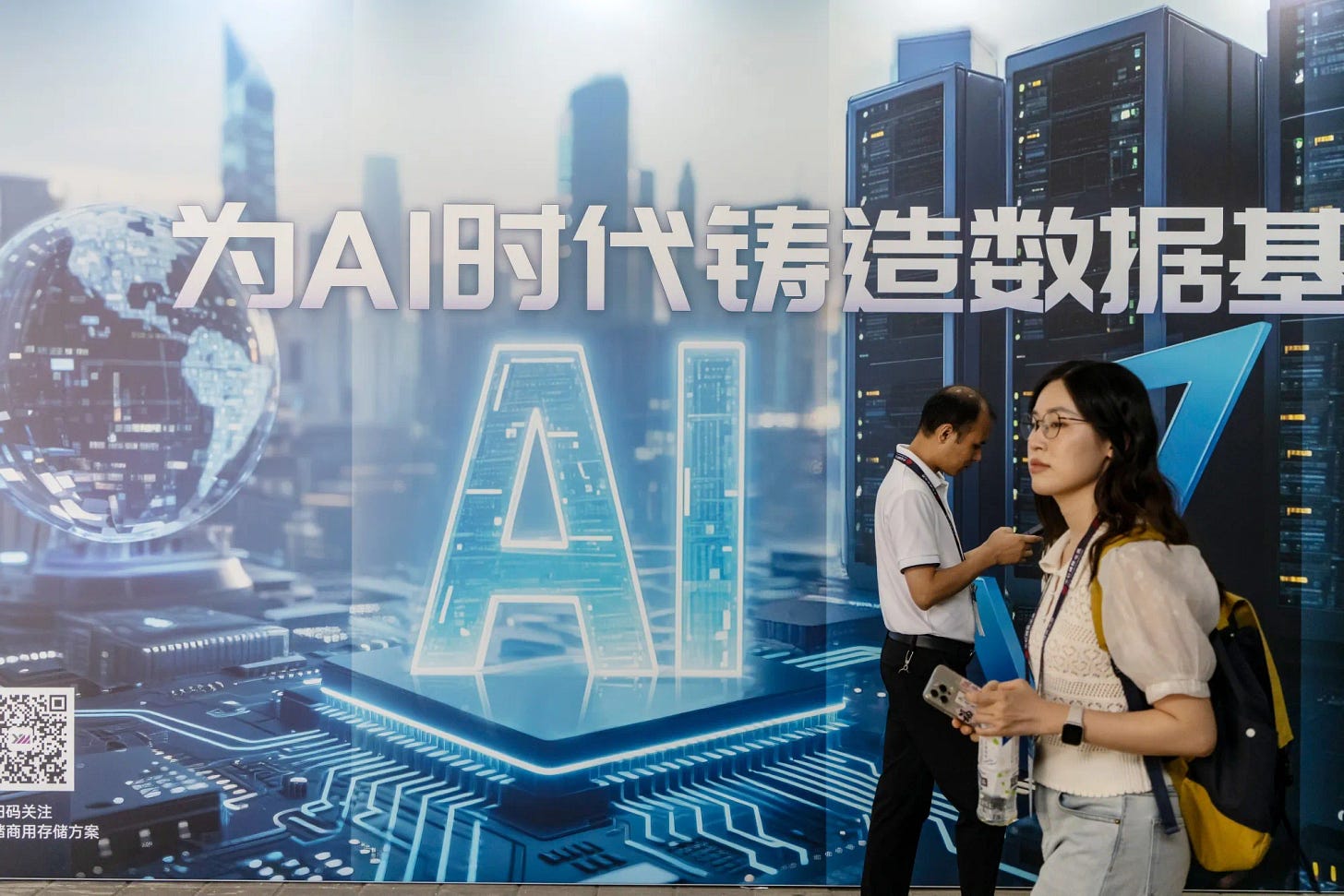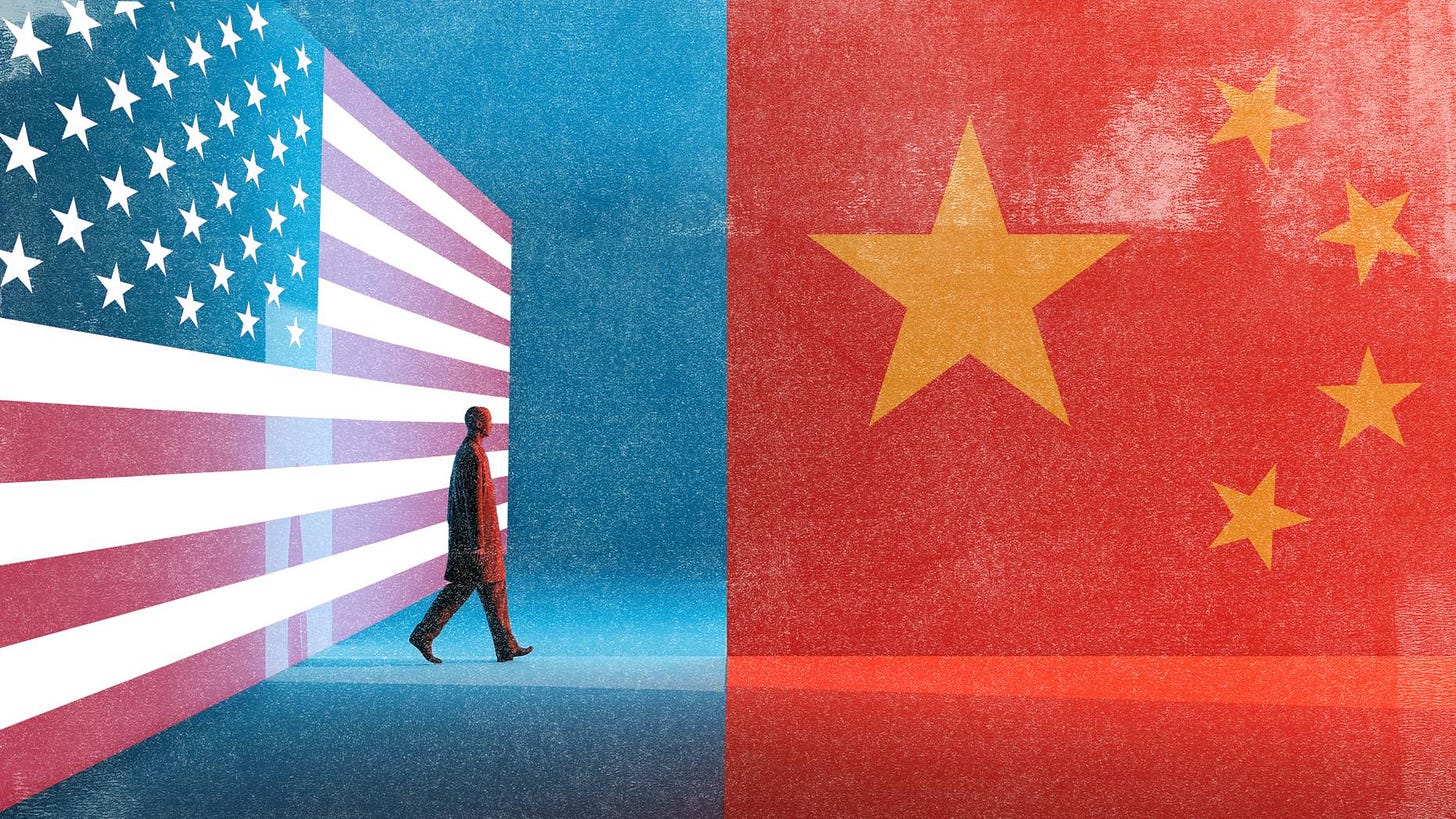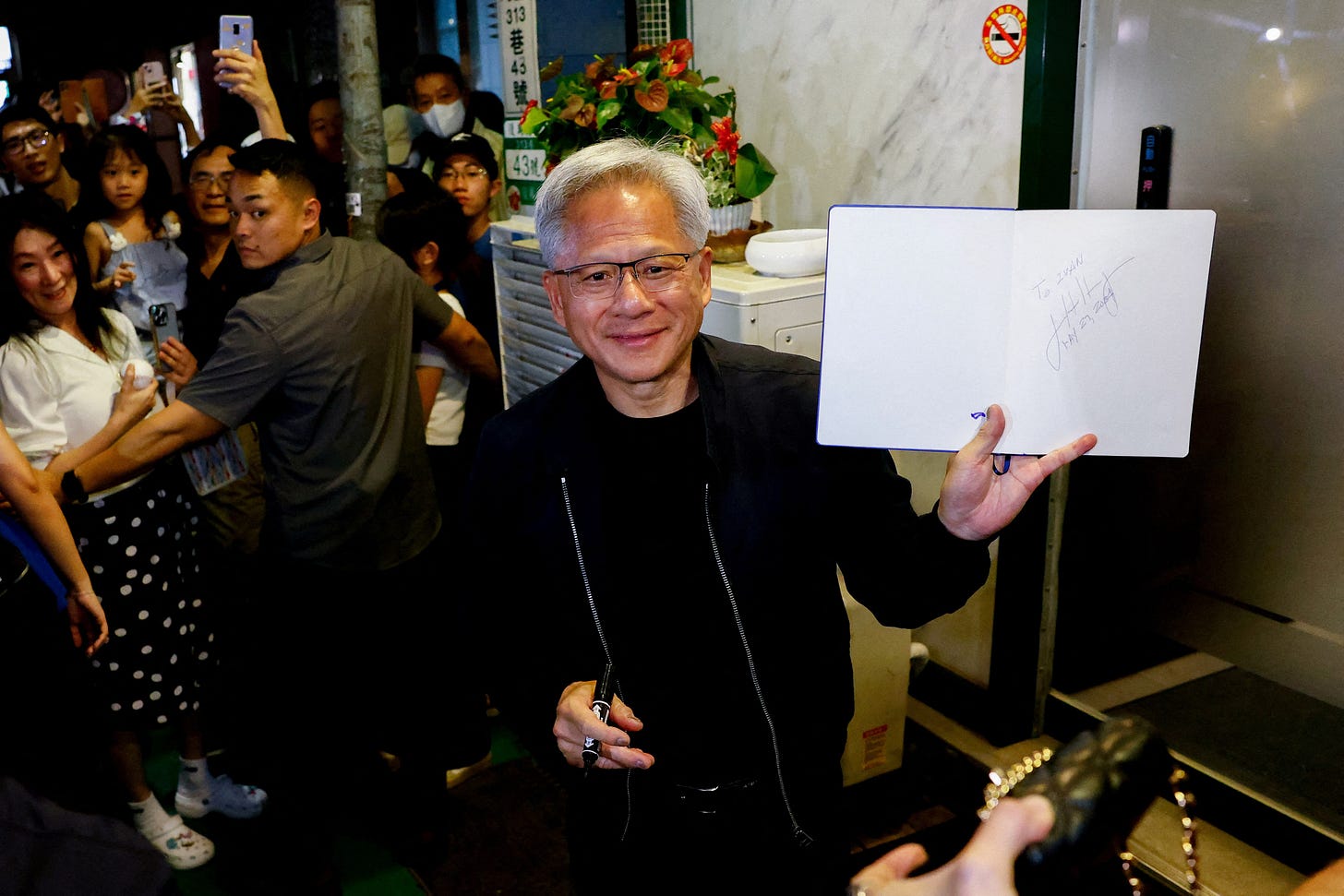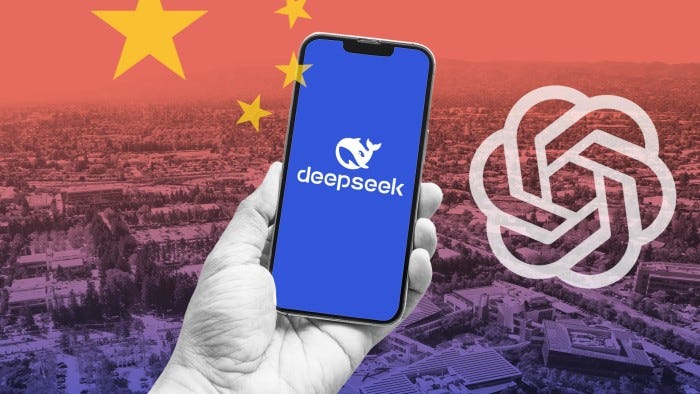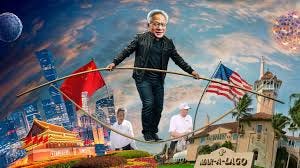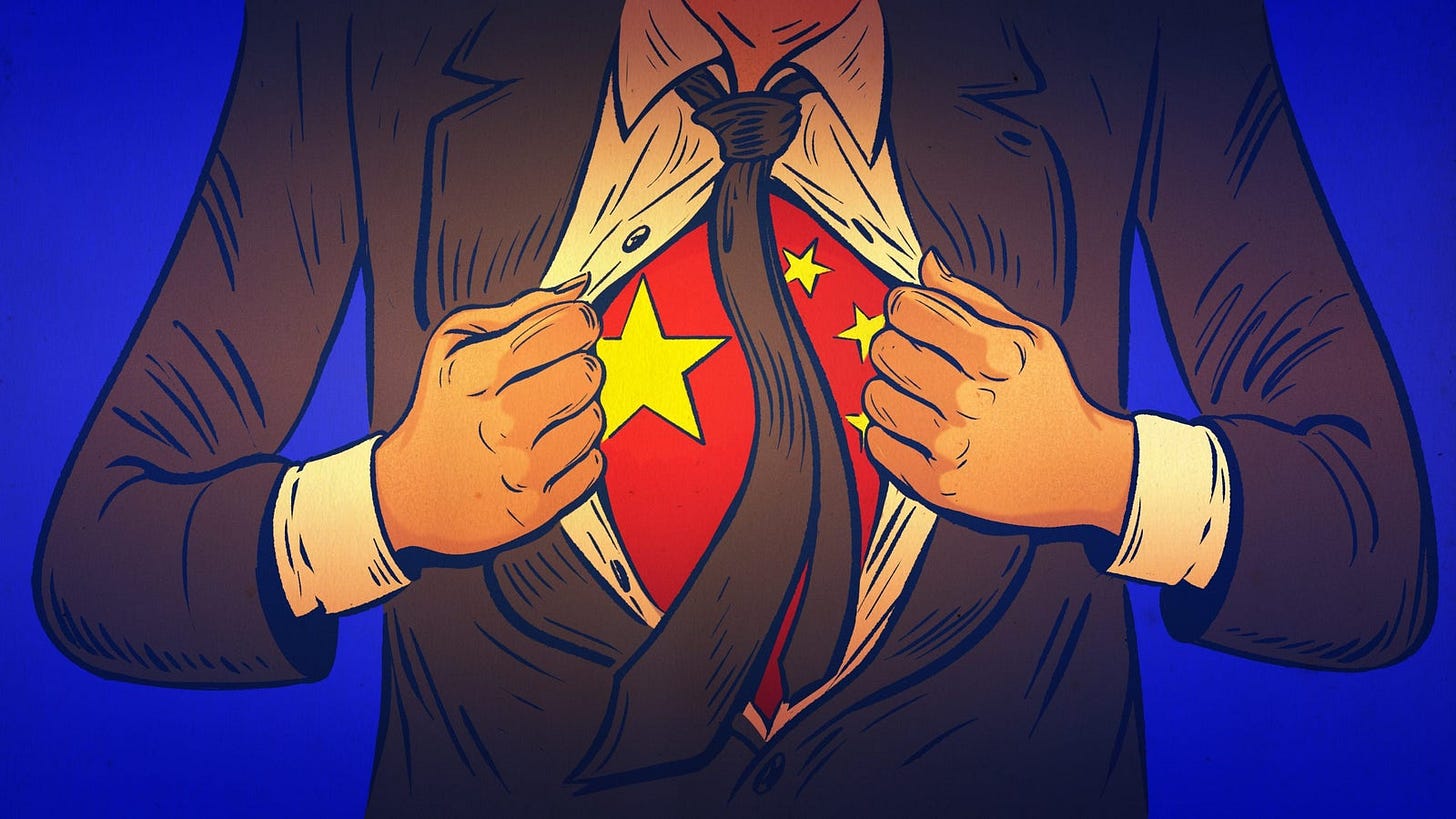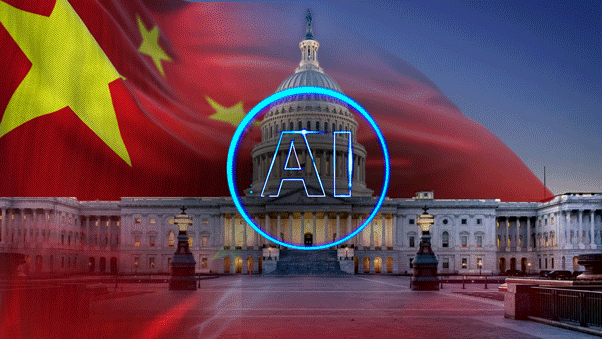
AI: Chinese AI Talent reconsidering the US. RTZ #856
After Meta’s aggressive push for AI Talent in this AI Tech Wave earlier this summer, I underlined how critical Chinese AI talent is to the US companies. Nvidia’s Jensen Huang has loudly being pointing out that half the world’s AI Research talent is from China, and Asia broadly. And China of course is the second largest AI market after the US.
Now despite the gobs of money being offered to AI Research talent by the Mag 7s in this herculean LLM AI and AI Infrastructure race, signs are emerging that many Chinese AI Researchers may opt to work back in China than the US.
Of course part of the driver continues to be the ongoing, geopolitical US/China tech trade race, complete with immigration and tariff restrictions.
The Information lays out the emerging base case in “U.S. Loses Appeal for Chinese AI Researchers”:
“The Takeaway
“Chinese AI researchers increasingly return home due to U.S. visa restrictions.”
“Chinese tech firms actively recruit U.S.-based Chinese AI talent with strong offers.”
“U.S. AI talent pool faces shift as Chinese experts choose their home country.”
“The U.S. artificial intelligence sector is so crowded with Chinese researchers that some joke the global AI race is between two groups of Chinese—those in the U.S. and those in China. That joke may soon feel a bit stale.”
“A growing number of Chinese AI researchers and doctorate students in the U.S. are seriously considering moving back to China, concerned about discrimination and the immigration restrictions Donald Trump’s administration is imposing.”
The sands are shifting as a result.
“Meanwhile, some of China’s top students who years ago would have pursued graduate studies and jobs in the U.S. are choosing to stay in China, conscious of U.S. visa hurdles and their home country’s domestic AI advances. Last week, for instance, Trump announced a plan to impose a $100,000 fee on new applications for H-1B visas for skilled foreign workers.”
“Big Chinese tech firms are taking advantage of this shift in sentiment to woo talent from U.S. companies, which have long had an advantage in recruiting the best overseas technical talent with more money and the prestige of working for more globally renowned companies.”
Anecdotal stories are abound:
“One Chinese researcher who works at Meta Platforms in the U.S. said he has received frequent recruiting calls from ByteDance, Alibaba and Tencent. He is now considering taking a job with those Chinese firms, because the compensation packages they are offering exceed his current pay at Meta and their AI teams include some prominent Chinese talent he recognizes from top-tier AI conferences. To be sure, Chinese companies still cannot match the biggest paychecks worth tens of millions of dollars or more that Meta and its U.S. rivals have offered to woo top-level hires, headhunters say.”
“ByteDance in February hired Wu Yonghui, a 17-year Google veteran who was one of the key researchers behind the U.S. company’s Gemini AI models. Wu, who did his undergraduate studies in China before getting a doctorate in the U.S., is now head of ByteDance’s AI model research and development.”
And it goes to the heart of the current AI Talent reality in the US.
“These changes suggest a fundamental shift in the AI talent mix in the U.S., where Chinese-born AI researchers have an outsize presence inside both companies and academic labs.”
“The more that tensions rise between the U.S. and China, the less likely that Chinese students will feel safe going to university in the U.S. or even have the ability to do so,” said Jacob Feldgoise, who tracks AI talent flows at Georgetown University’s Center for Security and Emerging Technology.”
The other issue is the long-term financial impact on one of the US’s most well placed Education system, which has attracted the best of the best from around the world for decades.
“Historically, many top computer science students from Chinese universities have gone to the U.S. for doctoral programs, lured by America’s world-class research and lucrative career prospects. Traditionally, the majority of those Chinese students stayed in the U.S. after getting their doctorates, often working for Silicon Valley tech companies or top academic labs.”
“Now, young Chinese AI researchers feel they face a difficult choice between two powerful tech ecosystems that increasingly view each other as adversaries—a choice that could determine their path for the rest of their lives.”
I’ve written about the US reliance on Chinese AI Research talent in detail. The Information continues:
“The U.S. and China have both benefited from the flow of Chinese AI talent between the two countries, said Jeffrey Ding, assistant professor of political science at George Washington University and author of the “ChinAI” newsletter. Chinese students and researchers have contributed to the U.S. talent pool, and many of them have also connected China with global innovation networks.
“Now, people almost have to pick one track, one country,” Ding said. “I think it will hurt both of them.”
The numbers are eye-opening:
“Which side Chinese AI experts choose matters a lot to the U.S. and China, as the brightest minds could determine who wins the AI race. According to a 2022 study by MacroPolo, a now-defunct think tank formerly under the Paulson Institute, nearly 40% of top-tier AI researchers working in U.S. institutions hailed from China. The same study also found that nearly half of the world’s top-tier AI researchers earned their undergraduate degrees in China, where millions fight for spots at elite schools like Tsinghua University and Peking University in a hypercompetitive education system.”
And current US actions are shaking the foundations of this long-time ‘win-win’ immigration flow, starting with core issues of trust and respect. Despite the balancing acts of key US tech leaders.
“The Trump administration’s immigration crackdown, as well as its moves to clamp down on foreign students, have contributed to the changing attitudes of Chinese AI researchers. In May, Secretary of State Marco Rubio announced that the U.S. would “aggressively revoke visas for Chinese students,” including those with connections to the Chinese Communist Party or those in “critical fields.” Rubio also said the administration would revise visa criteria to enhance scrutiny of all future applications from mainland China and Hong Kong.”
“Earlier this month, NASA banned Chinese nationals, including those with a U.S. visa, from accessing its data, facilities and programs due to national security concerns. China-born academics have also been increasingly targeted and even prosecuted.”
Not helping are the additional layers of regulatory processes aimed at this cohort from China.
“Some Chinese computer science students in the U.S. say they are being forced to renew their visas annually or go through reviews. One doctoral student said he had a visa interview in March where a visa officer told him the renewal would require further investigation. Six months later, he is still waiting with his research projects on hold. The student said: “What should I do if they reject my visa in the end?”
“The Chinese doctoral student at Carnegie Mellon said he has avoided doing any summer internships in China, because having a record of working for a Chinese AI company could later result in extra scrutiny from U.S. authorities during visa reviews. Similarly, another Chinese doctoral student in the U.S. said he turned down an internship opportunity at Huawei Technologies in China, because of fears that visa officers might view it as a red flag when he goes back to the U.S.”
And the messages continue to shift from week to week.
“President Trump, meanwhile, is sending confusing messages. Last month, he said he would issue 600,000 visas for Chinese students coming to the U.S. “I’m honored to have the students from China come here,” he said.”
The whole piece is worth a full read, but the broader point is valid. We take for granted the longer term impact of the current US/China immigration, trade and tariff tussles in the bipartisan supported geopolitical concerns, at our longer term peril.
The US has benefited from waves of immigration and assimilation more than any other nation in the world over the last century and a half. That is a Super-Feature, not a political ‘Bug’.
Respect for that process, from the individual to the national and global level, is a fundamental part of attracting key global talent to the US. And likely critical to continued US leadership in the AI Tech Wave ahead.
(NOTE: The discussions here are for information purposes only, and not meant as investment advice at any time. Thanks for joining us here)

